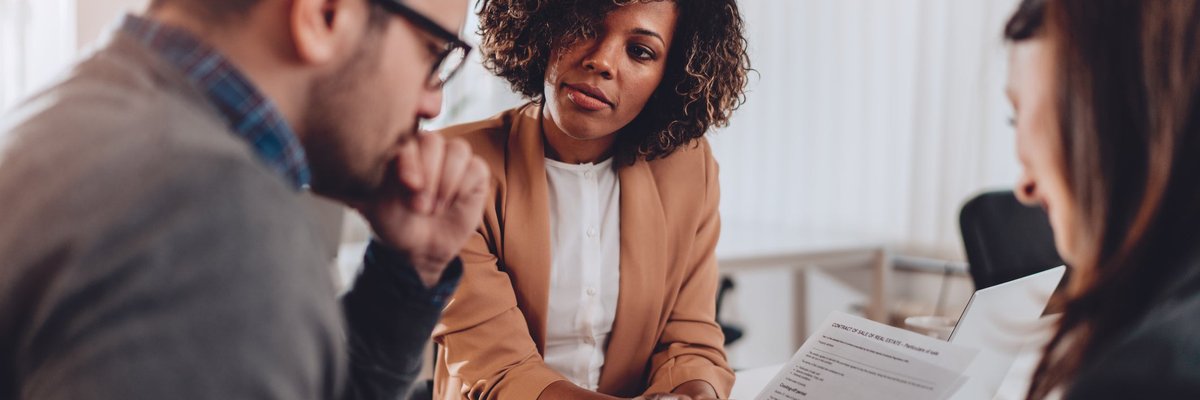Can Your Home Down Payment Ever Be Too High?
KEY POINTS
- Making a 20% down payment on a home is recommended, but not required -- and you're allowed to put more down if you want.
- If you sink all your spare cash into your home purchase, you could be left without money for emergencies or to meet your other financial goals, like retirement savings.
- Aim to put down slightly more than 20% if you can, but don't tie up all your cash in an illiquid asset like a house.
Wait, how could that be possible!?
There's a lot to worry about in the process of buying a home. You'll have to ensure all your financial ducks are in a row (because lenders will scrutinize your finances), find the right neighborhood for you, and save up a big enough down payment. Contrary to popular belief, you don't have to make a 20% down payment on a home purchase, but it is recommended, so you can avoid paying for mortgage insurance.
Many people struggle with that last part, but you may be fortunate enough to have a nice chunk of savings, sufficient to cover not just 20% of the cost of the home you want to buy, but even more. If you're planning to buy a $300,000 home and are sitting on $120,000 (or 40% of your home's price) in savings, is it a good idea to roll all that cash into the purchase? Let's take a look at some benefits and drawbacks of making a higher down payment.
Benefits of a larger down payment
First off, if you're putting at least 20% down on your home purchase, you'll be able to skip that pesky mortgage insurance. Mortgage insurance is protection for your lender, not you; it's intended to help your lender make up the difference if you stop making your mortgage payments and it must take the home back and resell it at a loss on what you owe. If you're putting 20% or more down, your lender can have a bit more confidence that you'll make your payments, as you stand to lose a lot more money than if you only made, say, a 5% down payment.
Along the same lines, putting more money down is likely to make you a more favorable borrower in the eyes of mortgage lenders. You'll be seen as less of a risk and might be more likely to be offered better interest rates. At a time when rates are up, this is especially important, because the more you pay in interest, the more expensive your home purchase will be.
If you can put a lot of money down, you might also be able to swing a shorter mortgage term. While the 30-year fixed-rate mortgage is something of an American institution, it's certainly not your only option to buy a house. If you can comfortably afford (meaning, you're paying less than 30% of your income toward your housing costs) larger mortgage payments, that bigger down payment could make it feasible for you to get a 15-year fixed-rate mortgage instead. That means paying less interest on the loan.
Drawbacks of a larger down payment
All of that sounds pretty great, right? Well, not so fast. If you're intending to use your $120,000 as a down payment and that represents all your cash savings, you might regret tying up all your money this way. Homes aren't a liquid asset the way cash is. This means that if you had some kind of catastrophe and needed money in a hurry, you'd have to sell your house. And this isn't always a guarantee -- if mortgage rates are up, as they are now, buyers might be thin on the ground.
For that matter, you might want to do other things with some of that cash. When you're dreaming of buying a home, it's easy to get carried away focusing on it, and not stop to consider other financial goals you might have. Should some of that cash go into your IRA account, for example? And you don't just have to think about the distant future when weighing your options. It would stink to sink all your cash into a jumbo down payment for your new home and then be unable to afford repairs on it, or even some lovely new furniture to fill the space you now have to call your own.
If you're fortunate enough to have a big down payment fund, why not consider making a slightly larger down payment (say, 25%, which would amount to $75,000 on a $300,000 home), and hanging onto the rest of that cash? You'll still likely qualify for a decent mortgage rate (especially if you have good credit), avoid mortgage insurance, and be left with money to cover surprise repairs and meet your other goals.
Our Research Expert
We're firm believers in the Golden Rule, which is why editorial opinions are ours alone and have not been previously reviewed, approved, or endorsed by included advertisers. Motley Fool Money does not cover all offers on the market. Motley Fool Money is 100% owned and operated by The Motley Fool. Our knowledgeable team of personal finance editors and analysts are employed by The Motley Fool and held to the same set of publishing standards and editorial integrity while maintaining professional separation from the analysts and editors on other Motley Fool brands. Terms may apply to offers listed on this page.



